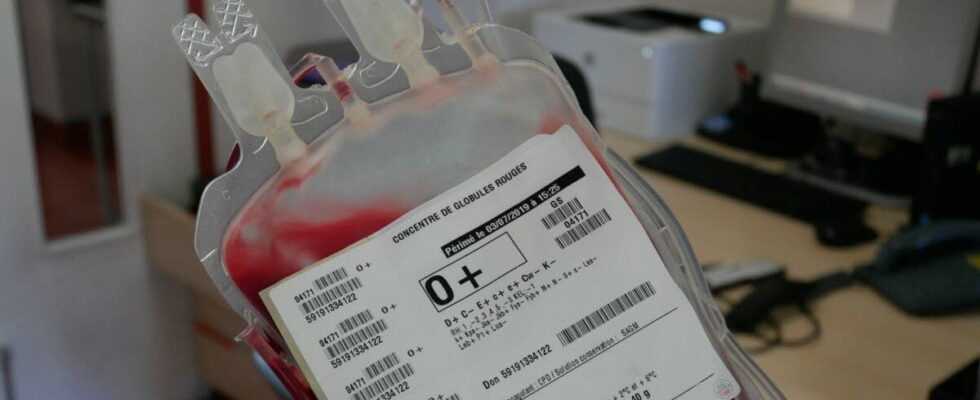“How is it possible that I never caught it?” “Or even:” I have been in contact several times and I have never been contaminated”. While France is in the midst of the fifth wave of Covid-19 and more than 436,000 contaminations were recorded on Wednesday, many people who have been in regular contact with patients are wondering why they have never tested positive since the start of the epidemic. An “immunity” which questions at a time when contaminations are blazing in France.
To explain that with equal exposure to the virus, some people have a greater risk than others of being infected, scientists have recently looked into several hypotheses. Among them: the influence of blood group.
O blood groups, better protected against the virus?
A study published in the journal Epidemics indeed suggests that depending on their blood group, a person would have different risks of contracting Covid-19.
After a series of experiments, Peter Ellis, doctor of biosciences at the University of Kent in Great Britain, came to the conclusion that “blood group incompatibilities can reduce the risk of transmission by 60% or more”. In other words, a person belonging to group A can more easily transmit Covid-19 to another person from group A than to a person from group B.
The study also suggests that certain groups are “super-transmitters” while others are “super-receivers”. Thus, the members of group O would have on average less risk of being contaminated but could conversely more easily transmit the virus.
This does not surprise Jacques Le Pendu, director of research at Inserm who spoke on this subject to France Inter. “It’s no wonder. We had found the same thing in 2003 for SARS on an epidemic in Hong-Kong”, he explains.
How to explain this phenomenon ?
Inserm had already noted a few months ago this lower risk for type O people of contracting the virus. “At the start of 2021, 34 studies comparing patients to ‘controls’ reported an association between the risk of Covid-19 infection and blood group. These studies have notably pointed to a reduced risk for people with blood group O,” reads a press release from the Institute. However, the latter specifies that even if this reduction in risk is observable, it remains “relative”.
But then, how can these results be explained?
Inserm notes that people in group O have anti-A and anti-B antibodies, whereas French people in group B only have anti-A antibodies and those in group A have anti-B antibodies. Thus, belonging to group O “constitutes a double defence”. Indeed, “when a virus (here, the Covid) is produced by a person of group A, it will have the mark of this blood group on it, and in the same way for a person of group B. A person of group O, it will have anti A and Anti B antibodies and will be able to destroy the virus more quickly”, specifies Jacques Le Pendu.
Group A patients more affected by severe forms
Another lesson from research carried out on the blood groups of Covid-19 patients: people belonging to groups A and AB are “more at risk of staying in intensive care for a long time or having recourse to mechanical ventilation” than patients of groups B and O, according to the results of a Canadian study.
Finally, Inserm points out that an Italian study published in the journal BMC Cardiovascular Disorders showed that young patients with a severe form of Covid-19 and a history of hypertension had a three times higher risk of dying from the disease if they were A, AB or B. Again, the O therefore seem more spared.
Other “immunity” factors
While these results are based on solid scientific analyses, “it is important to note that belonging to blood group O does not in any way dispense with barrier gestures and the usual measures of social distancing, which remain with vaccination the main measures. protection against COVID-19”, wrote Inserm a few months ago. Being less at risk does not mean not being. A group O person may well have one or more comorbidities favoring severe forms of Covid-19.
Especially since many other factors can explain why some people have never had Covid-19 since the start of the pandemic.
A study carried out this time by scientists from Imperial College London and published in NatureCommunications early January shows that people who contracted a cold shortly before being in contact with people infected with Covid-19 are less likely to be contaminated. Indeed, the body of some individuals could remember its previous fights against coronaviruses responsible for colds, and thus better resist once brought face-to-face with SARS-CoV-2.
In addition, some people could also benefit from “super-immunity” linked in particular to genetic factors. This explains why some individuals generally fall less ill than others, whether it is Covid or other viruses.
There are also barrier gestures, or quite simply luck, to explain the absence of contamination in certain people.
